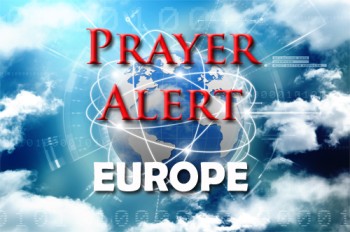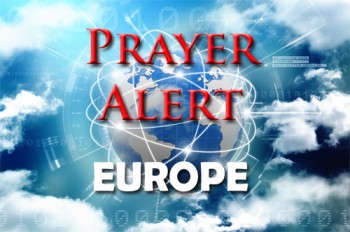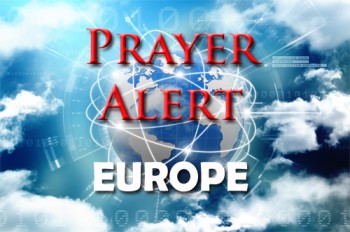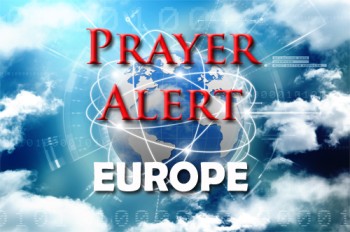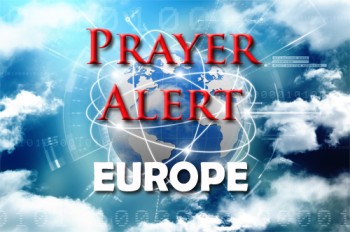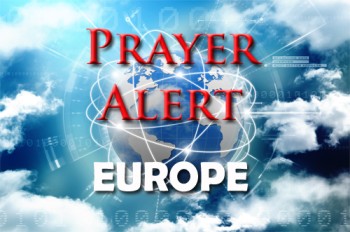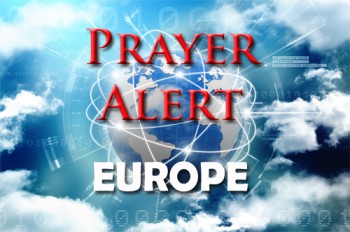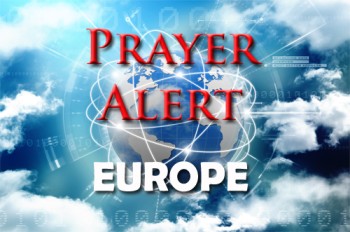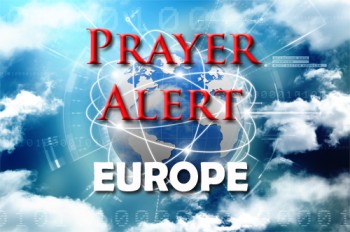Displaying items by tag: Ukraine
Germany / China: Scholz’s balancing act
German chancellor Olaf Scholz has tried to strike a delicate balance on a trip to China. He wanted to promote business ties but also to raise concerns over China's export surge to Europe and its support for Russia’s war in Ukraine. Meeting with top leaders including Xi Jinping, he adopted a conciliatory tone in his discussions, emphasising partnership while acknowledging China as a competitor and systemic rival. This marked his first visit since Germany categorised China as such and called for reduced dependency on Chinese goods. Germany faces economic challenges, exacerbated by rising energy prices due to the Ukraine war. Scholz also urged Jinping to press Russia to end its ‘senseless’ war with Ukraine: see
Ukraine: Russia’s neighbours urge NATO allies to bring back military service
Toivo Saabas, a young Estonian conscript, has been undergoing rigorous military training in the country's icy forests. Conscription, mandatory for men over 18 and voluntary for women, remains vital in Estonia, conscious of Russia's invasion of Ukraine. Five other countries in the region are reintroducing or expanding conscription in response to heightened security concerns. Despite the gruelling training, soldiers like Toivo recognise the importance of service to their country. His commanding officer is confident about the readiness of Estonian forces and the strategic backing of NATO in the face of any potential aggression from Russia - a possibility which the Kremlin dismisses. The war in Ukraine has also changed policies in Finland, which joined NATO a year ago: see
Slovakia: Fico’s government causing fear within minorities and concern in Ukraine
In December 2022, Slovakia’s former prime minister Robert Fico was facing numerous criminal charges which, if proven, would have seen the populist firebrand put behind bars. However, the charges were dropped, and in an election which observers say was fuelled by hate speech and pro-Kremlin conspiracy theories, he was returned to power last September. His government’s aggressive stance towards the LGBTQ+ community and other minorities has made many of those groups fearful of what the future holds. For this and other reasons, there is a considerable ‘brain drain’, especially of young people, to the Czech Republic. Also, over the border, Ukrainians are conscious of his promise to block EU sanctions against Russia and veto its package of military support for Kyiv.
Ukraine: drone attacks on Russian oil refineries
On 12 and 13 March, Ukraine conducted heavy drone attacks on several Russian oil refineries, seriously damaging one and causing a fire at another, in one of the most serious attacks against Russia's energy sector in recent months. Oil prices rose 2% partly due to concerns about supply disruption following the attacks which Vladimir Putin said were an attempt to disrupt his country's presidential election this week. Russia and Ukraine have both used drones to strike critical infrastructure and military targets, with Kyiv stepping up attacks on Russian refineries and energy facilities in recent months. Ukraine's SBU security service claimed responsibility for the strikes, stating that they aim to weaken Russia's economic strength. The attacks targeted key sources of Russia's income, potentially reducing gasoline and diesel output. Ukrainian forces also targeted a Russian airbase and military airfield. The escalation underscores the intense conflict between the two nations and the potential economic impact of attacks on Russia's energy infrastructure.
German ambassador refuses to apologise for leaked call 'revealing British troops in Ukraine'
Germany's ambassador to the UK, Miguel Berger, has declined to apologise for a leaked call that inadvertently exposed details about British troops in Ukraine. The leak, attributed to Russia, revealed a conversation between Lieutenant General Ingo Gerhartz, head of the German air force, and other officers, discussing sensitive military information. This incident has raised significant security concerns among UK military sources and NATO allies. German Chancellor Olaf Scholz labelled the security breach as "very serious," prompting an investigation in Berlin. Berger, speaking on BBC Radio 4's Today programme, indicated that the breach likely resulted from one officer using an unsecured line, describing it as an "individual mistake." Berger criticised former UK Defence Secretary Ben Wallace's comments about Germany's vulnerability to Russian intelligence, calling them "extremely unhelpful" and a potential trap set by Russia to sow discord among NATO allies. The call, publicised in Russian media, was deemed a "hybrid attack" by Moscow by Berger. He stated that the German Defence Minister Boris Pistorius had communicated with allies to clarify Berlin's stance on the incident. Russia has used the leak to claim direct Western involvement in the Ukraine conflict.
Russia attacks Ukraine’s Odesa as Greek PM visits war-stricken city
During a visit by Greek Prime Minister Kyriakos Mitsotakis to Odesa, Russia launched an attack on Ukraine's port city, resulting in at least five deaths. The strike, confirmed by a Ukrainian navy spokesperson, targeted a hangar reportedly housing Ukrainian naval drones. This assault coincided with Ukrainian President Volodymyr Zelenskyy's guided tour for Mitsotakis, showcasing the war-induced devastation. On March 2, a drone attack in the same city had killed 12 people, including five children. The latest strike, as described by the Russian Defence Ministry, successfully hit its intended target. President Zelenskyy, in response to the attack, highlighted the indiscriminate nature of Russian strikes. Mitsotakis experienced the immediacy of war, noting the stark difference between hearing about the conflict and witnessing it firsthand. European Commission President Ursula von der Leyen condemned the attack, calling it a "vile" act and a new form of terror by Russia. This attack marks a continuation of Russia's intensified strikes on Ukrainian ports, particularly following their withdrawal from a UN-brokered agreement that facilitated the safe passage of Ukrainian grain through the Black Sea.
Russia: North Korean factories supplying munitions
South Korea’s defence minister has said that North Korea's munitions factories are operating at full capacity to supply weapons and shells to Russia for the war conflict in Ukraine. This revelation sheds light on North Korea's secretive role in aiding Russia's war efforts, while Ukraine's own need for military resupplies faces obstacles in Washington. The exchange involves millions of rounds of artillery shells, facilitated by shipments of food and other essentials from Russia, while other factories are operating at only 30% capacity due to shortages in raw materials and electricity. It is estimated that over 10,000 containers of munitions have been delivered since September. They come at a critical juncture in the conflict, as Moscow seeks to sustain its war efforts amidst heavy losses. Russia's recent capture of Avdiivka highlights its ability to wear down Ukrainian forces, while Kyiv faces challenges including manpower constraints and dwindling Western ammunition supplies.
Ukraine: Avdiivka close to being surrounded by Russian forces
In a makeshift field hospital near Avdiivka, a surgeon is treating soldiers for frostbite and shrapnel wounds as the war with Russia nears its two-year anniversary. With exhaustion and frustration mounting among defenders due to weapon shortages and the absence of a swift victory, casualties are rising. Vitalii, a former children's hospital surgeon, said, ‘I urge the West to be more decisive in assisting Ukraine; otherwise sooner or later their soldiers will (also) have to fight against this evil that has invaded our country.’ After many months, the Kremlin's forces appear close to surrounding the ruins of Avdiivka, with some Ukrainian soldiers privately admitting that the town, scene of some of the heaviest fighting of the war so far, could fall at any moment. In such dire circumstances, the resilience of the Ukrainian soldiers shines through as they continue to fight against overwhelming odds.
Ukraine: drones touted as key to future success
Ukrainian commander-in-chief Valerii Zaluzhny has highlighted the use of drones as a way of countering Russia's military advantage and altering the course of the war. Russia has also continued to attack Ukraine with drones and missiles, but it has failed to capture new territory despite its superior resources. Recent Ukrainian successes which illustrate the potency of drones include sinking a Russian warship and strikes on airfields and an oil refinery. Ukraine expects to exploit this technological advantage by producing millions more drones. Meanwhile, although the EU finally approved a €50 billion aid package for Ukraine on 2 February, this is seen as only a small step: see
Ukraine / Russia: another prisoner exchange, ICJ ruling
On 31 January, Russia and Ukraine conducted a prisoner exchange. Russia claimed that each side received 195 soldiers, but Volodymyr Zelensky said that 207 Ukrainian soldiers had been returned. This was the 50th exchange since Russia's invasion of Ukraine in February 2022, and the first such swap since the recent plane crash which Russia claimed had 65 Ukrainian prisoners of war on board. There are continuing doubts in Kyiv regarding this assertion, especially because no photographs have been released showing dozens of dead bodies. Both sides have called for an international investigation, and the details of the incident remain unverified. In another development, the International Court of Justice has ruled that Russia violated terrorism and anti-discrimination treaties: see
